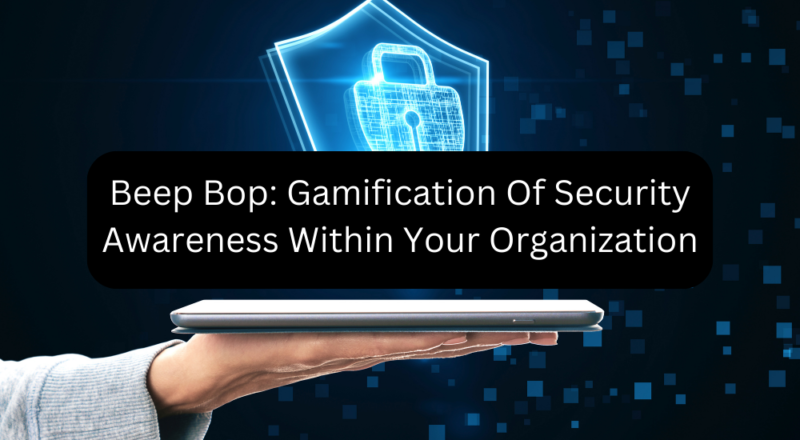Human error by far is the most common cause of cyber security breaches in organisations, but less than 15% of businesses provide cyber security training to non-cyber employees. This means that businesses are currently not tackling the problem head-on with enough vigour. The reality is that most people don’t know to be able to identify potential security flaws in their day-to-day operations.
Examples include:
Creating Weak Passwords
Weak passwords that are easy to guess can allow hackers access to your account, which could leave the whole organisation vulnerable to a larger cyber attack if hackers can glean sensitive information from company accounts. If hackers were able to access a high-level manager or executive in a business they may have access to extremely sensitive information about the business and their account may have privileges that can be used to wreak havoc within organisations. You can empower employees through robust security awareness training is the first line of defense against evolving cybersecurity threats to businesses. All employees within organisations should ensure that their password is hard to guess and the password itself is complex, with the addition of numbers and special characters within passwords.
Being Too Trusting Of Emails
Around a third of all cyber attacks occur because employees within organisations have received emails, usually from outside the organisation that include a link to a website. For example, an employee could receive a fake email that claims to be from their boss or another person in the organisation and if the employee clicks the link their computer will likely take them to a website, but will also install malware on their computer at the same time. Likely, the malware download will not be visible to the computer user. Malware can allow hackers to steal passwords and sensitive information.
Phone Scams And Social Engineering
You have likely received a phone call from a scammer before, they usually phone you up and claim to be a customer representative from a company that you may or may not use. They usually start asking for personal information that the legitimate company really should know if you are a customer of theirs. Scammers may claim that you have underpaid and you need to send them money in the form of gift cards to settle the debt. Be very cautious whenever you receive requests for payment in gift cards.
How Gamification Can Be The Answer
Immersive Content
When people play video games they are immersed in a digital world where they are faced with objectives that they will have fun completing. Organisations can use the love many people have for gaming to provide more engaging and captivating training to their employees. In fact, employees who play educational video games have a retention rate of 15x more than employees who complete standard training, usually involving a PowerPoint presentation which can often be quite dull and uninspiring. You should give security awareness training to build a vigilant firewall against online threats and protect your business online. Cyber security that has aspects of gamification within causes the employee to be far more likely to remember the information that was taught to them within the game. This is because video games can be enjoyable and can make better use of repetition to teach employees than standard methods of training.
Read: Essential ERP Features for Warehouses and Distributors in 8 Picks
Increases Participation And Course Completion
Simply because employees are having more fun whilst they are participating in the cybersecurity training while playing a video game they are more likely to finish the course. They may even look forward to the next one! This is a far cry from the standard reaction many employees express after completing a cyber security PowerPoint presentation. If the video game is set up in a way where correct answers to questions advance them in the game or gives them extra lives or powerups the game could promote a good dose of healthy competition amongst employees. You could set up a scoreboard in your office that can allow employees to banter with each other about the score, this can motivate employees to play the game more and solidify their cyber security knowledge simultaneously.
Facilitates Behavior Change
Within the game employees could be presented with cyber security problems such as receiving a dodgy-looking email, if they engage with the dodgy email they may lose points or a life. The game could be used to teach employees what to look out for when they receive emails, so that when they receive emails themselves outside the game they are likely more perceptive about the email as they are looking for reasons why the email might be dodgy. Cultivating a culture of vigilance through essential cybersecurity tips empowers everyone to be the first line of defense against cyber threats.
Gamification Doesn’t Have To Stop At Cyber Security
Gamification can help your employees learn a variety of different things in a manner that is fun and engaging, this helps employees retain information and even look forward to taking part in more courses. This can help businesses cross-train employees so that skills can be transferred more effectively among employees. Gamification can also be used to help train new employees about what is expected of them in their new job roles and about the things that they need to know to be effective in their jobs.
Conclusion
Gamification can level up your cyber security training, meaning that employees are less likely to make cyber security mistakes that can open your organisation up to hacks and scams. If your organisation or anyone inside your organisation has suffered financially you should contact your bank and fraud recovery professionals who will be able to help maximise the chances of getting your money back.
